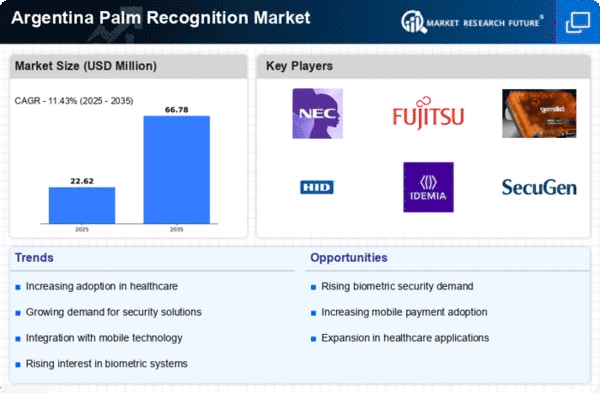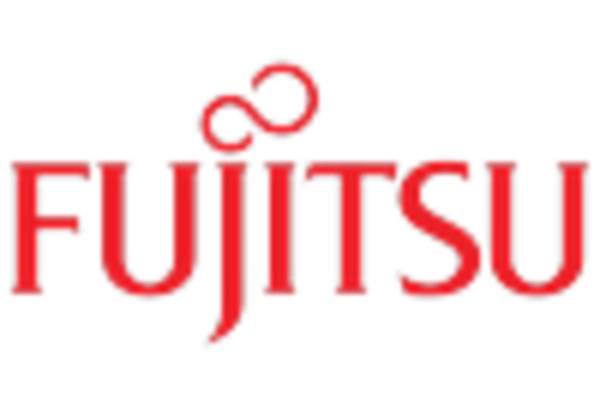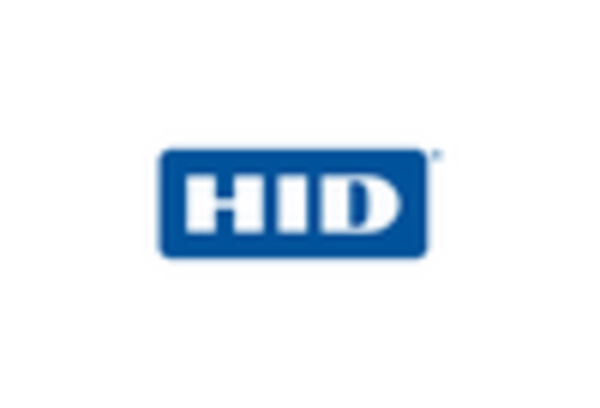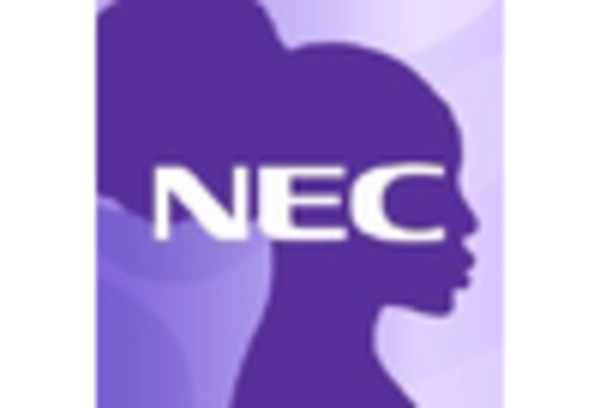Rising Security Concerns
Rising security concerns among businesses and consumers are significantly influencing the palm recognition market in Argentina. With increasing incidents of identity theft and fraud, organizations are seeking advanced security measures to protect sensitive information. The palm recognition market addresses these concerns by providing a reliable and secure method of authentication. In 2025, it is estimated that the demand for biometric security solutions will grow by 25%, reflecting a shift towards more secure identification methods. This trend indicates a strong potential for the palm recognition market to thrive as it aligns with the growing emphasis on safety and security.
Growing Demand for Seamless User Experiences
The growing demand for seamless user experiences is a key driver of the palm recognition market in Argentina. Consumers increasingly prefer quick and efficient authentication methods that do not compromise security. Palm recognition offers a user-friendly solution that allows for swift access without the need for physical contact. As businesses strive to enhance customer satisfaction, the adoption of palm recognition technology is likely to increase. In 2025, it is projected that the market for user-friendly biometric solutions will expand by 15%, highlighting the potential for palm recognition to meet the evolving expectations of consumers in various sectors.
Increasing Adoption of Biometric Technologies
The palm recognition market in Argentina is experiencing a notable surge due to the increasing adoption of biometric technologies across various sectors. Organizations are increasingly recognizing the advantages of biometric systems, which offer enhanced security and efficiency. In 2025, the biometric technology market in Argentina is projected to reach approximately $300 million, with palm recognition being a significant contributor. This growth is driven by the need for secure access control in sectors such as banking, healthcare, and government. As businesses and institutions prioritize security, the palm recognition market is likely to expand, providing innovative solutions that meet the demands of a tech-savvy population.
Government Initiatives for Digital Transformation
Government initiatives aimed at digital transformation are playing a crucial role in the growth of the palm recognition market in Argentina. The Argentine government has been investing in technology to improve public services and enhance security measures. For instance, the implementation of biometric identification systems in public services is expected to streamline processes and reduce fraud. By 2025, it is anticipated that government spending on biometric solutions will increase by 20%, further propelling the palm recognition market. These initiatives not only foster trust in digital systems but also encourage private sector participation, creating a conducive environment for market growth.
Technological Advancements in Recognition Systems
Technological advancements in recognition systems are driving innovation within the palm recognition market in Argentina. The development of sophisticated algorithms and machine learning techniques has enhanced the accuracy and speed of palm recognition systems. As these technologies evolve, they are becoming more accessible and affordable for various industries. By 2025, the market for advanced biometric systems is expected to grow by 30%, with palm recognition technologies leading the way. This growth is indicative of a broader trend towards integrating cutting-edge technology into security solutions, thereby expanding the potential applications of palm recognition in diverse sectors.
















